
The illegal alien lobby hates the term “illegal alien”. They want people to believe it is not a legal or accurate term.
Most of the below page is taken from a February, 2015 post on the original DIS blog.
FAIR has an informative page on the topic.
_____
We took a few minutes to illustrate just a few examples of the official use of ”illegal alien.”As is illustrated below, “illegal alien is used by federal law enforcement, in federal law, in Georgia law, presidential Executive Orders, the IRS, and by SCOTUS – including by the “wise Latina” Justice Sonia Sotomayor.
In its 2019 decision that illegal alien DACA recipients are “inadmissible and thus removable under federal law” and not eligible for instate tuition under Georgia law, the 11th Circuit Court of Appeals used the term at least twice in its opinion – example on page 20.
(“The [Supreme] Court has never applied strict scrutiny review to a state law affecting any . . . alienage classifications [except for those involving resident aliens or permanent resident aliens], e.g., illegal aliens, the children of illegal aliens, or nonimmigrant aliens.”).
__________________
The 5th Circuit Court of Appeals uses the term “illegal alien” to describe illegal aliens thirty-nine (39) times in its opinion regarding Obama’s DAPA amnesty. HERE
___________________
Here is an official press release from the U.S. Department of Homeland Security/U.S. Customs and Border Protection. Please note the reference to *”illegal alien.”
Border Patrol Agents Rescue Alien Locked in Trunk
Release Date: June 22, 2015
PINE VALLEY, Calif.—U.S. Border Patrol agents arrested two United States citizens near the Interstate 8 checkpoint on Sunday after finding an illegal alien in their car trunk.
Yesterday at approximately 11:45 a.m., agents approached a 1998 Toyota Camry that had pulled over onto the shoulder of Interstate 8. After speaking with the 39-year-old female driver and her 43-year-old male passenger, the agents requested a Border Patrol K-9 team to conduct a cursory sniff of the vehicle.
While waiting for the Border Patrol K-9 team to arrive, the driver consented to a search of the vehicle. Agents opened the trunk and discovered an 18-year-old male inside who was sweating profusely due to the heat. The trunk was not equipped with an internal escape latch and the man was not provided with any water. Agents determined that the man was a Mexican national illegally present in the U.S.
The driver and her passenger were arrested and face Federal charges for human smuggling. Their vehicle was seized by the U.S. Border Patrol.
Last fiscal year, the San Diego Sector apprehended 29,911 people for entering the U.S. illegally.
To prevent the illicit smuggling of humans, drugs, and other contraband, the U.S. Border Patrol maintains a high level of vigilance on corridors of egress away from our Nation’s borders. To report suspicious activity to the U.S. Border Patrol, contact San Diego Sector at (619) 498-9900.
U.S. Customs and Border Protection is the unified border agency within the Department of Homeland Security charged with the management, control and protection of our nation’s borders at and between the official ports of entry. CBP is charged with keeping terrorists and terrorist weapons out of the country while enforcing hundreds of U.S. laws.
________________________
We find it amusing that the illegal alien lobby wants people to believe that “illegal alien” is not used in federal law but that they also push legislation to remove the term “illegal alien” from federal law.
CHANGE Act would replace the words “illegal alien” in federal laws with “undocumented foreign national”
One example from federal law:
8 U.S. Code § 1365 – Reimbursement of States for costs of incarcerating illegal aliens and certain Cuban nationals
(a) Reimbursement of States
Subject to the amounts provided in advance in appropriation Acts, the Attorney General shall reimburse a State for the costs incurred by the State for the imprisonment of any illegal alien or Cuban national who is convicted of a felony by such State.
(b) *Illegal aliens convicted of a felony
An *illegal alien referred to in subsection (a) of this section is any alien who is any alien convicted of a felony who is in the United States unlawfully and—
(1) whose most recent entry into the United States was without inspection, or
(2) whose most recent admission to the United States was as a nonimmigrant and—
(A) whose period of authorized stay as a nonimmigrant expired, or
(B) whose unlawful status was known to the Government,
before the date of the commission of the crime for which the alien is convicted.
(c) Marielito Cubans convicted of a felony
A Marielito Cuban convicted of a felony referred to in subsection (a) of this section is a national of Cuba who—
(1) was allowed by the Attorney General to come to the United States in 1980,
(2) after such arrival committed any violation of State or local law for which a term of imprisonment was imposed, and
(3) at the time of such arrival and at the time of such violation was not an alien lawfully admitted to the United States—
(A) for permanent or temporary residence, or
(B) under the terms of an immigrant visa or a nonimmigrant visa issued,
under the laws of the United States.
(d) Authorization of appropriations
There are authorized to be appropriated such sums as are necessary to carry out the purposes of this section.
(e) “State” defined
The term “State” has the meaning given such term in section 1101 (a)(36) of this title.
_______________________
An Executive Order from a U.S. President:
A proclamation from Reagan titled, “High Seas Interdiction of *Illegal Aliens”:
PROCLAMATION NO. 4865
Sept . 29, 1981, 46 F.R. 48107
HIGH SEAS INTERDICTION OF *ILLEGAL ALIENS
The ongoing migration of persons to the United States in violation of our laws is a serious national problem detrimental to the interests of the United States. A particularly difficult aspect of the problem is the continuing illegal migration by sea of large numbers of undocumented aliens into the southeastern United States. These arrivals have severely strained the law enforcement resources of the
Immigration and Naturalization Service and have threatened the welfare and safety of communities in that region.As a result of our discussions with the Governments of affected foreign countries and with agencies of the Executive Branch of our Government, I have determined that new and effective measures to curtail these unlawful arrivals are necessary. In this regard, I have determined that international cooperation to intercept vessels trafficking in illegal migrants is a necessary and proper means of insuring the effective enforcement of our laws.
NOW, THEREFORE, I, RONALD REAGAN, President of the United States of America, by the authority vested in me by the Constitution and the statutes of the United States, including Sections 212(f) and 215(a)(1) of the Immigration and Nationality Act, as amended (8 U.S.C. 1182(f) and 1185(a)(1)) [subsec. (f) of this section and section 1185(a)(1) of this title], in order to protect the sovereignty of the United States, and in accordance with cooperative arrangements with certain foreign governments, and having found that the entry of undocumented aliens, arriving at the borders of the United States from the high seas, is detrimental to the interests of the United States, do proclaim that:
The entry of undocumented aliens from the high seas is hereby suspended and shall be prevented by the interdiction of certain vessels carrying such aliens.
IN WITNESS WHEREOF, I have hereunto set my hand this twenty-ninth day of September, in the year of our Lord nineteen hundred and eighty-one, and of the Independence of the United States of America the two hundred and sixth.Ronald Reagan
_____________________
# Another one:
An Executive Order from President George H.W. Bush in 1992 titled, “Interdiction of Illegal Aliens”
Exec. Order No. 12807
Interdiction of Illegal Aliens
May 24, 1992
23133 By the authority vested in me as President by the Constitution and the laws of the United States of America, including sections 212(f) and 215(a)(1) of the Immigration and Nationality Act, as amended (8 U.S.C. 1182(f) and 1185(a)(1)), and whereas:
(1) The President has authority to suspend the entry of aliens coming by sea to the United States without necessary documentation, to establish reasonable rules and regulations regarding, and other limitations on, the entry or attempted entry of aliens into the United States, and to repatriate aliens interdicted beyond the territorial sea of the United States;
(2) The international legal obligations of the United States under the United Nations Protocol Relating to the Status of Refugees (U.S. T.I.A.S. 6577; 19 U.S.T. 6223) to apply Article 33 of the United Nations Convention Relating to the Status of Refugees do not extend to persons located outside the territory of the United States;
(3) Proclamation No. 4865 suspends the entry of all undocumented aliens into the United States by the high seas; and
(4) There continues to be a serious problem of persons attempting to come to the United States by sea without necessary documentation and otherwise illegally.I, GEORGE BUSH, President of the United States of America, hereby order as follows: … Sec. 4. Executive Order No. 12324 is hereby revoked and replaced by this order.
Sec. 5. This order shall be effective immediately.
GEORGE BUSHTHE WHITE HOUSE May 24, 1992. …
____________________
# Here’s a page from USCIS where they use ”illegal alien.”
____________________
From the Internal Revenue Service
# IRS
Immigration Terms and Definitions Involving Aliens
Immigrant:
An alien who has been granted the right by the USCIS to reside permanently in the United States and to work without restrictions in the United States. Also known as a Lawful Permanent Resident (LPR). All immigrants are eventually issued a “green card” (USCIS Form I-551), which is the evidence of the alien’s LPR status. LPR’s who are awaiting the issuance of their green cards may bear an I-551 stamp in their foreign passports.
Immigrant visas are available for aliens (and their spouses and children) who seek to immigrate based on their job skills. If an alien has the right combination of skills, education, and/or work experience and are otherwise eligible, the alien may be able to live permanently in the United States. Per USCIS, there are five employment-based immigrant visa preferences (categories): EB-1, EB-2, EB-3, EB-4 and EB-5. Refer to the USCIS Permanent Worker web site for more details.
Nonimmigrant:
An alien who has been granted the right by the USCIS to reside temporarily in the United States. Each nonimmigrant is admitted into the United States in the nonimmigrant status, which corresponds to the class of visa with which, or purpose for which, he entered the United States (e.g., a foreign student may enter the United States on an F-1 visa, which corresponds to the F-1 student status in which he was admitted to the United States).
Aliens in some nonimmigrant statuses are allowed to be employed in the United States, and others are not. Some nonimmigrant statuses have rigid time limits for the alien’s stay in the United States, while others do not.
Each nonimmigrant status has rules and guidelines, which must be followed in order for the nonimmigrant to remain “in status.” A nonimmigrant who violates one of these rules or guidelines will fall “out of status.” An nonimmigrant who remains “out of status” for at least 180 days is deportable and will be unable to re-enter the United States for 3 years. A nonimmigrant who remains “out of status” for at least 365 days is deportable and will be unable to re-enter the United States for 10 years.
For more information on the types of visas available, refer to the Department of State’s Questions About Visas web page.
Illegal Alien
Also known as an “Undocumented Alien,” is an alien who has entered the United States illegally and is deportable if apprehended, or an alien who entered the United States legally but who has fallen “out of status” and is deportable.
_________________
# SCOTUS
Plyler v Doe
457 U.S. 202
Plyler v. Doe (No. 80-1538)
Argued: December 1, 1981
Decided: June 15, 1982 [*]
SyllabusHeld: A Texas statute which withholds from local school districts any state funds for the education of children who were not “legally admitted” into the United States, and which authorizes local school districts to deny enrollment to such children, violates the Equal Protection Clause of the Fourteenth Amendment.
Pp. 210-230.(a) The illegal aliens who are plaintiffs in these cases challenging the statute may claim the benefit of the Equal Protection Clause, which provides that no State shall “deny to any person within its jurisdiction the equal protection of the laws.” Whatever his status under the immigration laws, an alien is a “person” in any ordinary sense of that term. This Court’s prior cases recognizing that illegal aliens are “persons” protected by the Due Process Clauses of the Fifth and Fourteenth Amendments, which Clauses do not include the phrase “within its jurisdiction,” cannot be distinguished on the asserted ground that persons who have entered the country illegally are not “within the jurisdiction” of a State even if they are present within its boundaries and subject to its laws. Nor do the logic and history of the Fourteenth Amendment support such a construction. Instead, use of the phrase “within its jurisdiction” confirms the understanding that the Fourteenth Amendment’s protection extends to anyone, citizen or stranger, who is subject to the laws of a State, and reaches into every corner of a State’s territory. Pp. 210-216….
___________________
# SCOTUS
Arizona Chamber of Commerce v. Whiting — When the U.S. Chamber of Commerce teamed up with the ACLU and La Raza to kill the Arizona E-Verify law designed to protect jobs and wages from illegal aliens
Wikipedia: “Chamber of Commerce v. Whiting was a United States Supreme Court case which dealt with the question of whether the Legal Arizona Workers Act was invalid under federal statutes, in particular the Immigration Reform and Control Act. On May 26, 2011, the Supreme Court ruled, in a 5-3 decision, that The Legal Arizona Workers Act was not preempted by federal legislation.[2] Justices Roberts, Scalia, Kennedy, Alito and Thomas formed the majority opinion, while Justices Breyer, Ginsburg and Sotomayor formed the minority opinion (with Sotomayor filling her own dissenting opinion); Justice Kagan was recused in the case, because of having a prior role in the case because of her former role as the U.S. Solicitor General…”
- “Illegal alien was used three (3) times. Once by Justice Sonia Sotomayor. “In her dissent, Justice Sotomayor wrote that the court had interpreted federal law to allow states to “determine for themselves whether someone has employed an unauthorized alien so long as they do so in conjunction with licensing sanctions.” Sotomayor found this interpretation to be irreconcilable with the rest of the federal statute, arguing that Congress intended to reserve the right to make such a determination for the federal government. Only after the federal government had made such a determination could a state impose licensing penalties. Arizona disrupted the federal scheme “prohibiting the employment of illegal aliens in the United States” by making its own determination, and so the provision was therefore preempted by federal law.[7]
____________________
#SCOTUS again:
Arizona v. United States (2012)
* “Illegal alien” is used either ten (10) or eleven (11) times and seven or eight are uttered by Sotomayor.
Note from D.A. King in a MDJ column from 2012:
“Considering the ongoing, inflammatory and shameless race-baiting struggle by the illegal alien lobby to stop the use of the legally correct and far-too-accurate term “illegal alien” to describe illegal aliens, pro-enforcement Americans are finding it quite difficult to disguise their smirks at the fact that in last week’s (2012) 1-hour, 20-minute Supreme Court hearing on the Obama/Mexico/ACLU/La Raza suit against Arizona’s 2010 illegal immigration/public safety law, the term “illegal alien” was used 11 times. And each of those uses was by one of the justices. And using it seven or eight times was the self-described “wise Latina” Justice, Sonia Sotomayor.”
Example: “Because we keep talking about whether the APA-type definition of licensing is what Congress intended or not, but you don’t disagree that Congress at least intended that if someone violated the Federal law and hired * illegal aliens of Hispanic — undocumented aliens and was found to have violated it, that the State can revoke their license, correct, to do business?” – Justice Sonia Sotomayor.”
____________________
Georgia law
To save time, here is a post from ImmigrationPoliticsGA.com about a 2019 Atlanta Journal Constitution news report covering Democrat state legislators introducing legislation to change existing language in state law to eliminate use of the term “illegal alien.”
__________________
Bonus: Here is good tax advice from H&R Block, filed under “Illegal alien taxes”:
Regarding illegal alien taxes, my nanny is an illegal alien and I paid her under the table. She’s planning on filing a return and using her individual tax identification number. If the IRS asks who she works for, will I be penalized?
Read all about it here.


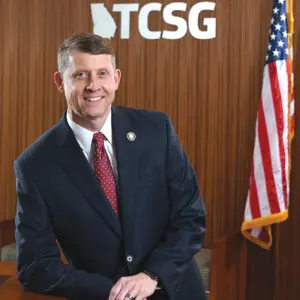

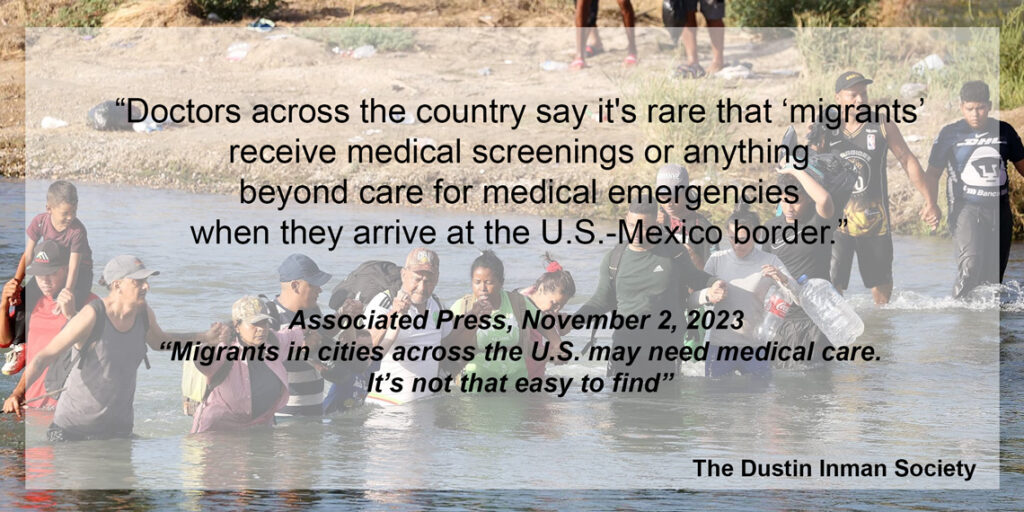

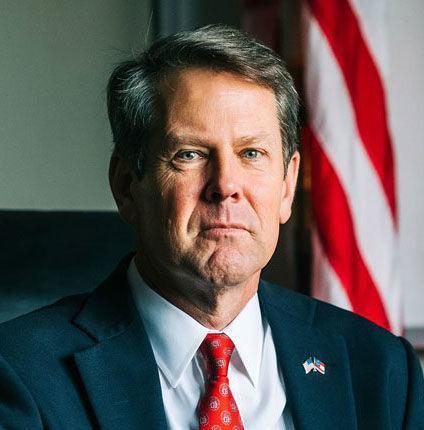


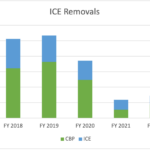








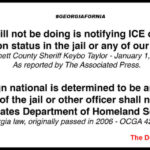



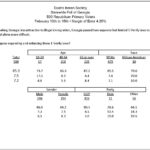



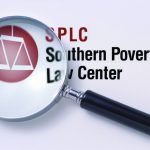

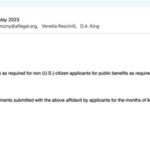
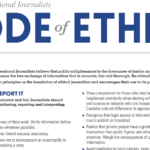
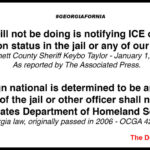




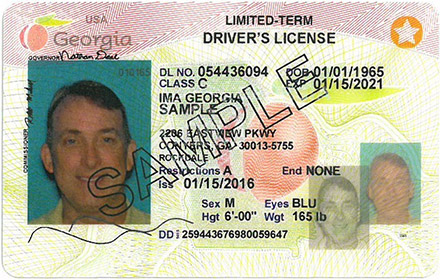




You must be logged in to post a comment.